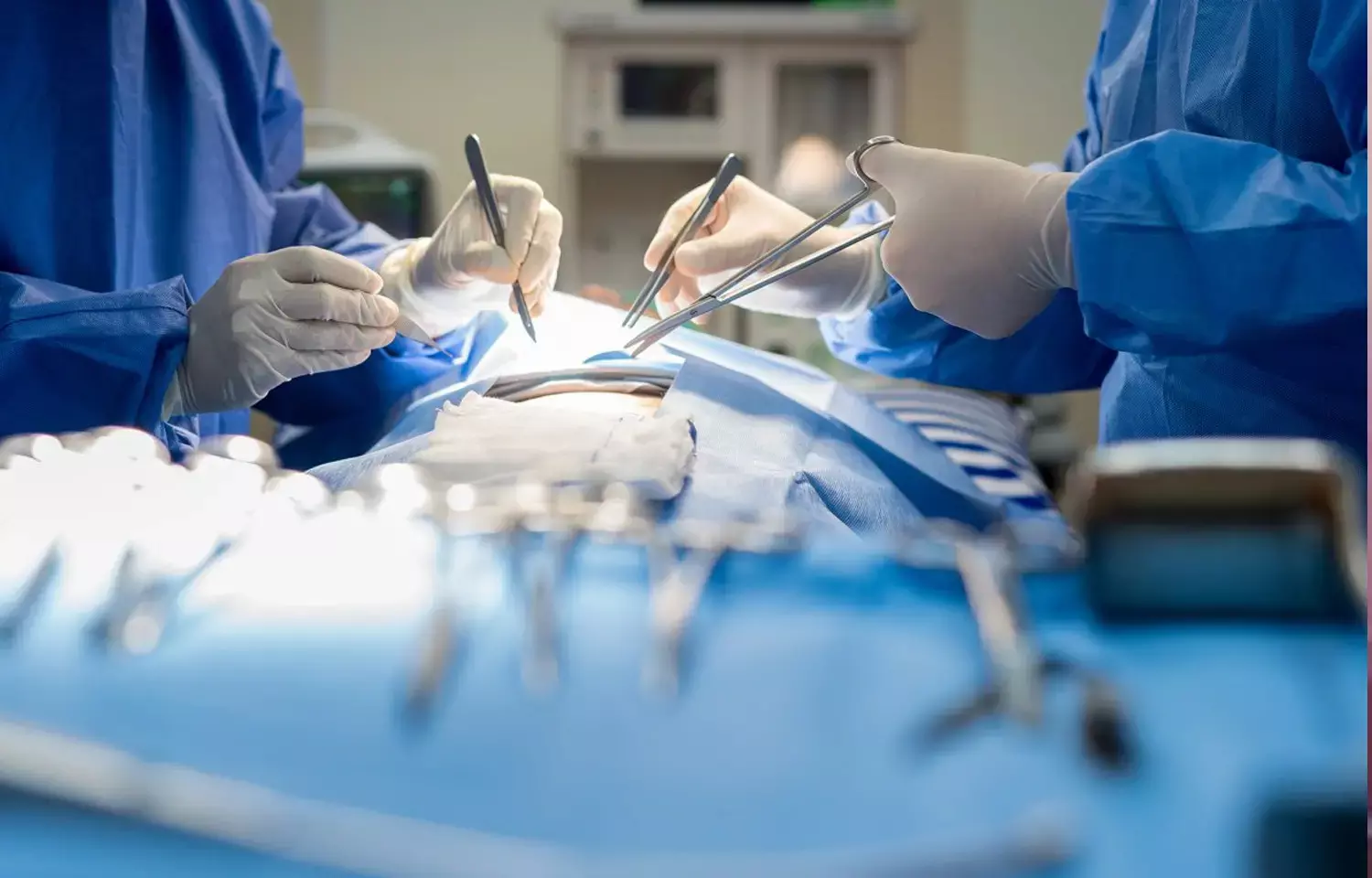- Home
- Medical news & Guidelines
- Anesthesiology
- Cardiology and CTVS
- Critical Care
- Dentistry
- Dermatology
- Diabetes and Endocrinology
- ENT
- Gastroenterology
- Medicine
- Nephrology
- Neurology
- Obstretics-Gynaecology
- Oncology
- Ophthalmology
- Orthopaedics
- Pediatrics-Neonatology
- Psychiatry
- Pulmonology
- Radiology
- Surgery
- Urology
- Laboratory Medicine
- Diet
- Nursing
- Paramedical
- Physiotherapy
- Health news
- Fact Check
- Bone Health Fact Check
- Brain Health Fact Check
- Cancer Related Fact Check
- Child Care Fact Check
- Dental and oral health fact check
- Diabetes and metabolic health fact check
- Diet and Nutrition Fact Check
- Eye and ENT Care Fact Check
- Fitness fact check
- Gut health fact check
- Heart health fact check
- Kidney health fact check
- Medical education fact check
- Men's health fact check
- Respiratory fact check
- Skin and hair care fact check
- Vaccine and Immunization fact check
- Women's health fact check
- AYUSH
- State News
- Andaman and Nicobar Islands
- Andhra Pradesh
- Arunachal Pradesh
- Assam
- Bihar
- Chandigarh
- Chattisgarh
- Dadra and Nagar Haveli
- Daman and Diu
- Delhi
- Goa
- Gujarat
- Haryana
- Himachal Pradesh
- Jammu & Kashmir
- Jharkhand
- Karnataka
- Kerala
- Ladakh
- Lakshadweep
- Madhya Pradesh
- Maharashtra
- Manipur
- Meghalaya
- Mizoram
- Nagaland
- Odisha
- Puducherry
- Punjab
- Rajasthan
- Sikkim
- Tamil Nadu
- Telangana
- Tripura
- Uttar Pradesh
- Uttrakhand
- West Bengal
- Medical Education
- Industry
Severe post-prostatectomy incontinence related with weight increase: Study

Researchers have found in a new study that severe post-prostatectomy incontinence (PPI) appears to be related with weight increase, while PPI repair with artificial urinary sphincter (AUS) insertion appears to be associated with weight loss.
The study has been published in the Journal Urology.
Raj R. Bhanvadia and colleagues undertook this study with the goal of examining the relationship between post-prostatectomy incontinence severity and weight variations before and after continence restoration using AUS.
This is a retrospective study of urologic prosthetic surgery (UPS) following radical prostatectomy (RP) performed by a single surgeon. As a surgical control, a group of post-RP inflatable penile prosthesis (IPP) patients was used. Body mass index (BMI) and total body weight were measured before and after UPS. BMI changes after UPS were assessed using multivariable linear regression.
The results of this study stated as follow:
1. The selection criteria were satisfied by 187 AUS patients and 63 IPP patients.
2. Larger PPI severity was related to quicker BMI growth after RP (coeff. 0.14 kg/m2, P = 0.03, per pad used), and the amount of incontinence improvement (mean reduction in daily pad usage) following AUS insertion was related to greater BMI reduction at 12 months post-UPS (coeff. - 0.13 kg/m2, P = 0.04).
3. In multivariable analysis, AUS insertion was linked with a - 2.83 kg/m2 drop in BMI 12 months after UPS (P = 0.02).
4. Men with AUS had a mean BMI reduction of -1.0 kg/m2 12 months after UPS, compared to a mean BMI rise of 0.4 kg/m2 in the IPP cohort (P 0.01).
5. AUS patients lost 6 kg more than IPP patients [Median(IQR): 90.4 (80.3–100.1) vs 96.4 (87.1–108.8) kg, P = 0.03], with almost one-third experiencing clinically significant weight loss (>5% body weight) at 12 months post-UPS (31.8% vs 8.3%, P 0.01).
"This is the first study to show that PPI severity is related to weight increase after prostatectomy and that PPI repair with AUS insertion is related to weight decrease. Because of the well-established, severe impact of weight increase on general health and longevity, these unique results might have far-reaching ramifications. Anti-incontinence surgery should be a regular component of prostate cancer survivorship treatment for men who have chronic PPI, but bigger multi-center trials are needed to validate our findings," concluded the Authors.
Reference:
Bhanvadia RR, Dropkin BM, Wolfe AR, Diao L, Sanders SC, Joice GA, Roehrborn CG, Hudak SJ, Morey AF. Restoration of Continence after Prostatectomy is Associated With Weight Loss: A Pilot Study. Urology. 2021 Dec;158:162-168. doi:10.1016/j.urology.2021.08.026. Epub 2021 Aug 29. PMID: 34469769.
Medical Dialogues consists of a team of passionate medical/scientific writers, led by doctors and healthcare researchers. Our team efforts to bring you updated and timely news about the important happenings of the medical and healthcare sector. Our editorial team can be reached at editorial@medicaldialogues.in.
Dr Kamal Kant Kohli-MBBS, DTCD- a chest specialist with more than 30 years of practice and a flair for writing clinical articles, Dr Kamal Kant Kohli joined Medical Dialogues as a Chief Editor of Medical News. Besides writing articles, as an editor, he proofreads and verifies all the medical content published on Medical Dialogues including those coming from journals, studies,medical conferences,guidelines etc. Email: drkohli@medicaldialogues.in. Contact no. 011-43720751


